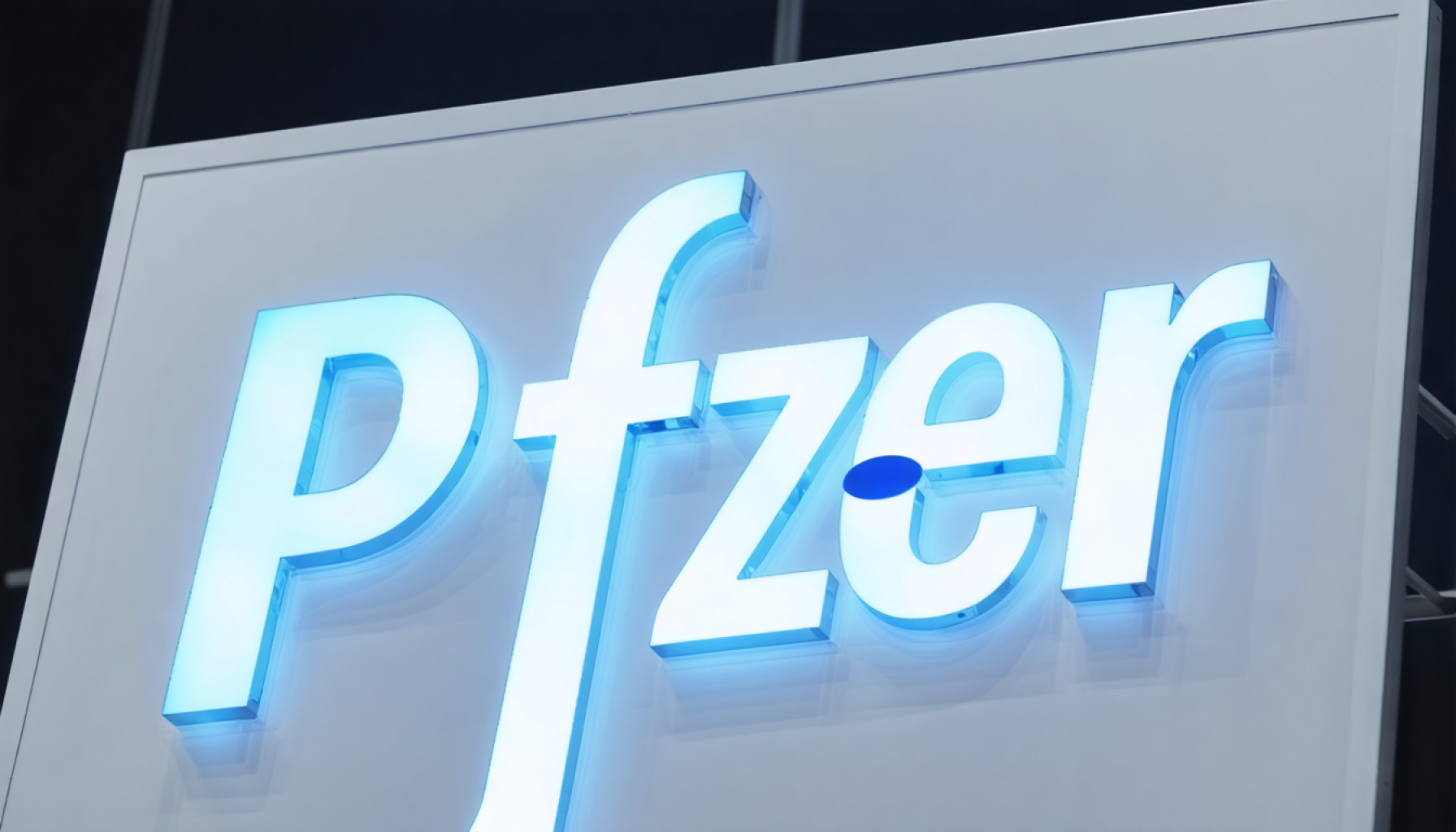- Pfizer’s stock rose by 1.5% despite halting the development of danuglipron, a promising weight loss drug, due to liver damage observed during clinical trials.
- This decision highlights the risks of drug development, but investors appear confident in Pfizer’s strategic pivot and comprehensive pipeline.
- Pfizer is advancing another weight loss candidate, PF-07976016, which operates through a different mechanism and is in phase 2 trials.
- Analysts expect Pfizer to continue using mergers and acquisitions to strengthen its market position and diversify its therapeutic portfolio.
- Investor confidence stems from Pfizer’s proven track record, including the success of its Comirnaty vaccine, showcasing its ability to overcome setbacks and innovate.
- The core takeaway: Pfizer’s resilience and strategic adaptability position it well for future successes in the pharmaceutical industry.
In the world of pharmaceuticals, where every discovery can be a double-edged sword, Pfizer’s recent turbulence reveals a curious twist. Investors this week embraced Pfizer’s stock, propelling it upward by 1.5%, despite a headline most companies would dread—a halt in the development of a promising weight loss drug, danuglipron. This unexpected reaction comes as the broader market, encapsulated by the S&P 500, dipped slightly by 0.2%.
Pfizer’s decision to discontinue danuglipron followed a sobering clinical trial incident: a patient suffered liver damage, prompting the company to pull back and reassess. The move underscores the risks inherent in drug development, where promising leads can quickly morph into cautionary tales. Yet, Pfizer’s apparent defeat masked a strategic pivot that investors seem to be betting on.
Brushing off the setback with typical resilience, Pfizer’s comprehensive pipeline strategy shows no signs of stagnation. The pharma behemoth is not placing all its bets on a single compound. Waiting in the wings is PF-07976016, a potential weight loss treatment employing a different mechanism entirely, now progressing through phase 2 trials. Such developments highlight the company’s deep bench in research and development—a critical facet often underestimated by onlookers.
Some analysts, keenly observing Pfizer’s maneuvering, see more than just reactive tactics. They anticipate a continuation of Pfizer’s proven approach of bolstering its prospects through bold mergers and skillful acquisitions. By potentially acquiring innovative solutions from peers, the company could swiftly fill any gaps left by its internal program’s hurdles. This strategy not only reinforces its market position but also diversifies its risk across a broader spectrum of promising therapies.
The market’s reaction hints at a deeper confidence: investors are banking on Pfizer’s long-term strategy rather than fixating on immediate setbacks. This optimism is not baseless. The company, once the frontrunner with its celebrated Comirnaty vaccine during the pandemic, has illustrated its capacity for monumental success. Pfizer’s current scenario, while not a victory lap, signals readiness to reclaim its stature as a pharmaceutical innovator.
As the wait for another landmark drug continues, the core lesson here seems clear. Investors are not just betting on Pfizer’s specific products; they are wagering on the enterprise’s capability to navigate crises, pivot astutely, and seize new opportunities. This resilience, laced with a history of adaptation, makes Pfizer a fascinating entity in the realm of pharmaceuticals, where sustained success is often the product of navigating setbacks today for triumphs tomorrow.
Pfizer’s Resilience: Navigating Setbacks and Market Confidence in a Turbulent Sector
The Strategic Pivot in Pfizer’s Pharmaceutical Journey
Pfizer’s recent halt in the development of danuglipron, a once-promising weight loss drug, highlights the inherent risks in pharmaceutical development. A clinical trial incident led to liver damage in a patient, prompting Pfizer to discontinue the drug. Despite this setback, Pfizer’s stock rose by 1.5%, suggesting investor confidence in the company’s broader strategy and long-term potential.
Understanding Danuglipron’s Discontinuation
The decision to halt danuglipron was based on its side effects, underscoring the unpredictable nature of drug development. The market’s positive reaction indicates that investors are looking beyond this individual product to Pfizer’s potential for future innovation.
Pfizer’s Robust Pipeline and Strategic Approach
Pfizer is renowned for its expansive drug development pipeline. A noteworthy contender is PF-07976016, currently in Phase 2 trials, showcasing a different mechanism for weight loss treatment. Such developments highlight Pfizer’s continued commitment to innovation:
– Alternative Drug Development: A lesson from the danuglipron setback is the importance of diversifying drug development strategies. PF-07976016 exemplifies Pfizer’s approach to tackling weight loss through varied mechanisms.
– Strategic Acquisitions: Analysts predict Pfizer may bolster its portfolio by acquiring innovative drugs from smaller players. This allows Pfizer to swiftly adapt and fill gaps left by setbacks, ensuring diversified risk and sustained market presence.
Market Insights and Long-Term Predictions
The pharmaceutical industry, characterized by its volatility, offers valuable insights into market trends:
– Investor Confidence: Despite setbacks, investors demonstrate trust in Pfizer’s capability to navigate challenges. This sentiment is bolstered by Pfizer’s past success, particularly with the Comirnaty vaccine.
– Industry Trends: Mergers and acquisitions are expected to continue shaping the sector, with major players like Pfizer leading the charge. This trend underscores the need for constant evolution in drug portfolios to stay competitive.
Actionable Steps for Stakeholders
1. Diversify Portfolios: Investors should consider the broader trends in the pharmaceutical industry and not focus solely on individual product successes or failures.
2. Stay Informed: Regularly monitor developments in Pfizer’s pipeline and broader industry movements to make informed decisions.
3. Assess Long-Term Potential: Evaluate companies like Pfizer based on their resilience and strategic pivots in response to industry challenges.
The Broader Pharmaceutical Landscape
The commitment to continuous innovation and acquiring strategic assets ensures that Pfizer remains a formidable player. The company’s strategic maneuvering exemplifies resilience, a necessary trait for success in pharmaceuticals.
For more insights into the pharmaceutical industry, visit Pfizer’s official site.
Conclusion: Navigating Setbacks for Future Triumphs
The key takeaway is the importance of resilience and strategic adaptability in facing setbacks. By betting on Pfizer, investors are essentially backing a proven model of navigating crises and capitalizing on emerging opportunities, reinstilling its status as a pharmaceutical leader.
